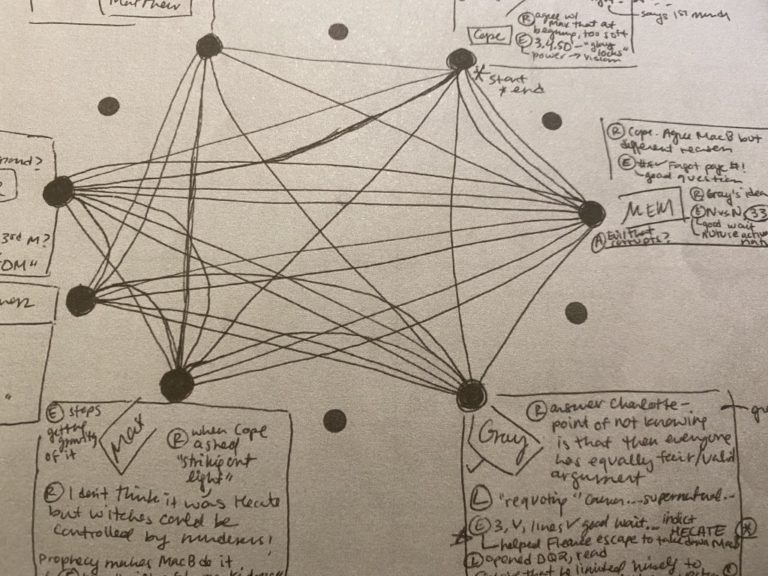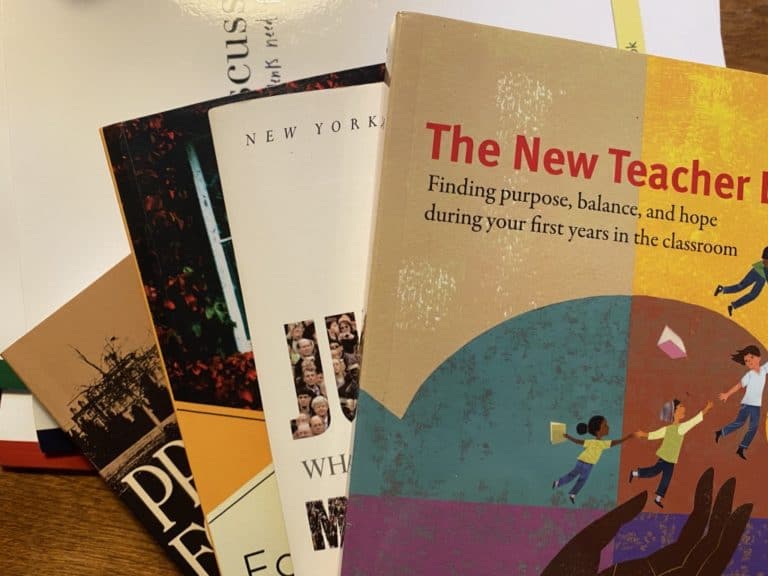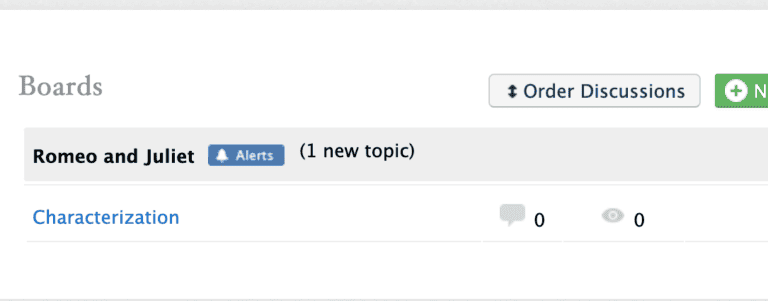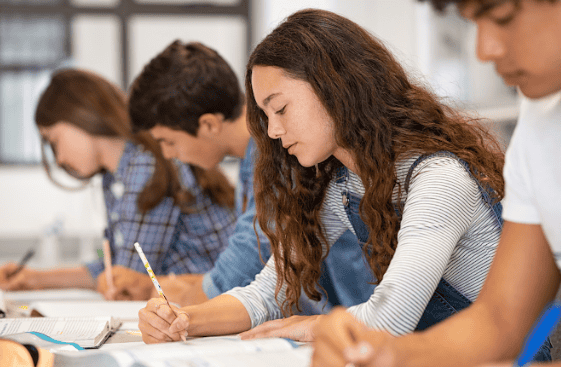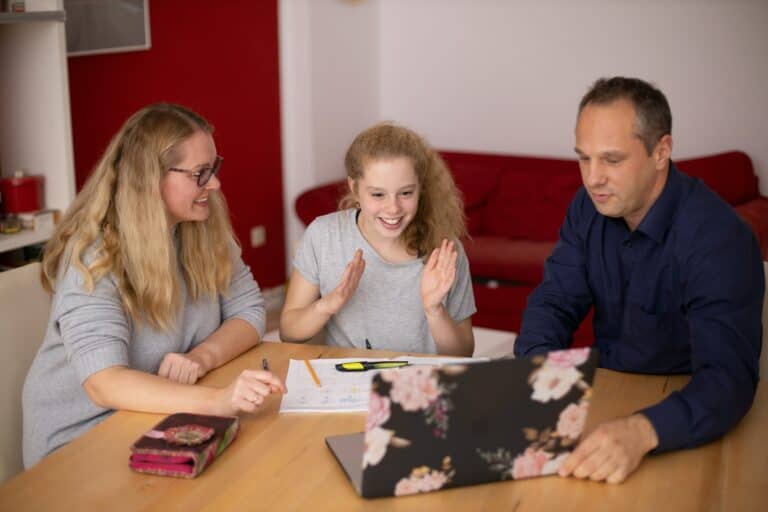R.E.A.L. Faculty Advisory Board Interview with Connie White
Connie White is the Director of Learning and Innovation at Woodward Academy in Atlanta, GA. We interviewed Connie about her approach to leadership and how R.E.A.L. supports her goal of supporting teachers to elevate the cognitive demand of classroom tasks and creating intentional opportunities for student voice and agency. What follows is a conversation between Connie and R.E.A.L.® Partnerships and Program Manager Catherine Dragone. This conversation has been lightly edited for clarity.
Catherine: We love to start these conversations with innovative educators by throwing it back to your own educational experience. To start us off, take us back – what were you like as a student? Did you have any favorite teachers?
Connie: As a student, I would say I was focused, curious, and happy. I genuinely loved school. I didn’t just enjoy it—I loved it.

Catherine: When you think back to those school years, especially your love for learning, did you have a favorite teacher?
Connie: I had two. One was in fifth grade—Mr. Ziegler. He really believed in me. I was living in Joliet, near Chicago, and he made it clear that he thought I was smart. That motivated me to try even harder. He actually started teaching me Algebra separately, differentiating instruction and pulling me aside. That really boosted my confidence. The second was a college professor—Dr. DeGraff. He encouraged me to major in chemistry and always believed I should be a teacher. We had to do many seminars, and he was incredibly supportive and encouraging. So both of them had a huge impact.
Catherine: Is there anything specific about how they made you feel, or the way they taught, that you’ve tried to carry into your own teaching?
Connie: Absolutely. I strongly believe in the work of Carol Dweck and others—the idea that when children believe their teachers believe in them, and they feel genuinely cared for, they rise to meet high expectations. The combination of love and high standards can be transformative. I’ve definitely tried to incorporate that into my own teaching practice.
The combination of love and high standards can be transformative.
Connie white
Catherine: How would you describe your approach to academic leadership?
Connie: As an academic leader, I constantly work to stay informed about new trends in pedagogy and technology, and I evaluate whether those trends can improve what we do. I’d describe myself as visionary, organized, and someone who can propel change. I can take ideas and turn them into actionable initiatives. I also love to learn—sometimes too much! But I’m very results-focused and data-driven. And I love to share and support others. Helping others grow and find their voice is really important to me.
Catherine: That’s a powerful mix—visionary leadership paired with action. So what education trends or emerging pedagogies are you most excited about right now?
Connie: AI is top of mind for all of us right now. We’re all working through how to use it effectively—how to create meaningful assessments that go deeper and can’t just be done by AI.
I’m also passionate about integrating soft skills and transdisciplinary skills into the classroom. I’m especially excited about how AI can help teachers identify the development of those transdisciplinary skills—like creativity, problem-solving, empowered learning—within disciplinary contexts. We’re tracking what that looks like across our K–12 curriculum, including digital literacy and other future-ready competencies. The other big focus for me is raising the level of thinking in classroom tasks. When tasks are more complex and personalized, they’re more meaningful and less replicable by AI.
Generally, I am focused on three things: supporting ongoing professional development for teachers, helping teachers elevate the cognitive demand of classroom tasks, and creating intentional opportunities for student voice and agency—through discussion, collaboration, and sharing. That’s why R.E.A.L. matters so much!
Catherine: What do you see as the power of discussion in today’s world?
Connie: It’s one of the highest priorities. Teaching students how to have meaningful, respectful conversations is essential, especially in today’s world. They need to learn to listen, share ideas, and disagree respectfully without confrontation. Our world desperately needs those skills.
Teaching students how to have meaningful, respectful conversations is essential, especially in today’s world. They need to learn to listen, share ideas, and disagree respectfully without confrontation. Our world desperately needs those skills.
connie white
Catherine: What are your hopes for students during those discussions?
Connie: With rising anxiety levels, it’s important to build trust first. Students need to feel safe. But with practice, their confidence grows. I start my class with a “wheel of names,” where one student shares a current event article they’ve read that week. Some students are nervous at first, so I let them submit a video instead. Interestingly, after doing a video once, many are more willing to speak up live next time. The growth in confidence and communication is amazing when students are given opportunities.
Catherine: From a leadership perspective, what are your hopes for teachers as they facilitate discussions?
Connie I hope they ensure every student has a voice—that discussions are balanced and that teachers are thoughtful in both their prompts and responses. Great prompts lead to thoughtful student responses. It’s about creating that space for deep thinking and participation.
Catherine: If someone knew absolutely nothing about R.E.A.L. Discussion, what would you tell them?
Connie: I’d say R.E.A.L. helps students build respectful communication skills, gives them the confidence to express their ideas, and fosters leadership. The R.E.A.L. model recognizes discussion as a developmental process, and the structure gives students the tools to engage meaningfully and prepares teachers to effectively evaluate skill growth over time.
The R.E.A.L. model recognizes discussion as a developmental process, and the structure gives students the tools to engage meaningfully and prepares teachers to effectively evaluate skill growth over time.
connie white
Catherine: Wow, Connie – what a powerful note to end on! You are right that at R.E.A.L. we take great care to help teachers approach discussion as a developmental process – not a single one-and-done event. Thank you for sharing your perspective today!

